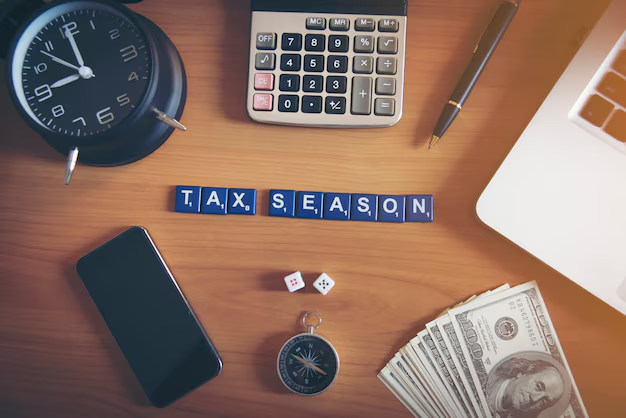
Personal finance is the backbone of a stable and prosperous life. Whether you’re looking to get out of debt, build wealth, or prepare for retirement, mastering personal finance is essential for achieving financial independence and security. In this ultimate guide to personal finance, we’ll break down the key principles, strategies, and steps to take in order to take control of your financial future.
From budgeting to saving, investing to retirement planning, each aspect of personal finance contributes to your overall financial health. This guide will provide you with the knowledge and tools necessary to manage your money effectively, make informed decisions, and set realistic financial goals.
Key Takeaway
Personal finance is about more than just managing money—it’s about creating a financial plan that supports your goals and provides peace of mind. Start by budgeting and saving, then build wealth through investments, manage debt effectively, and protect your future with insurance and retirement planning. With discipline and knowledge, you can master money management and build a financially secure life.
Understanding Personal Finance

Personal finance encompasses all of the financial decisions and activities of an individual or household, including budgeting, saving, investing, and managing debt. It also involves planning for future expenses, securing adequate insurance coverage, and preparing for retirement. Essentially, personal finance is about managing your money in a way that helps you meet your current needs while ensuring that you are prepared for future challenges.
Key areas of personal finance include:
- Budgeting – Creating a plan for your income and expenses.
- Saving – Setting aside money for emergencies, future needs, and big purchases.
- Investing – Putting your money into assets that can generate wealth over time.
- Debt Management – Managing and paying off outstanding debts.
- Retirement Planning – Saving for life after your working years.
- Insurance – Protecting yourself financially in case of unexpected events.
- Tax Planning – Minimizing tax liabilities through smart financial moves.
Mastering each of these areas will help you achieve financial stability and lay the groundwork for long-term wealth creation.
Budgeting: The Foundation of Financial Success
Budgeting is the first and most important step in managing your finances. It’s the process of tracking your income and expenses and allocating your funds in a way that aligns with your financial goals. A budget helps you understand where your money is going and identifies areas where you can cut back, save more, and invest wisely.
How to Create a Budget:
- Track your income: List all your sources of income, including your salary, bonuses, and any passive income from investments or side hustles.
- Identify expenses: Write down your monthly expenses, including fixed costs (rent, utilities, loans) and variable costs (groceries, entertainment, transportation).
- Set goals: Determine your financial goals, such as paying off debt, building an emergency fund, or saving for a vacation.
- Allocate funds: Use a budgeting method like the 50/30/20 rule, which suggests allocating 50% of your income to needs, 30% to wants, and 20% to savings and debt repayment.
- Monitor and adjust: Regularly review your budget to ensure you’re sticking to your plan and adjust when necessary.
By sticking to a budget, you’ll gain control over your finances, avoid unnecessary debt, and set yourself up for long-term financial success.
Saving: Building an Emergency Fund and More
Saving money is crucial for achieving financial security. It enables you to cover unexpected expenses, achieve financial milestones, and give you peace of mind. One of the first steps to saving is creating an emergency fund.
Steps to Start Saving:
- Start small: Begin by saving small amounts regularly. Set aside a portion of your income each month, even if it’s just $50 or $100.
- Create an emergency fund: Aim to save 3 to 6 months’ worth of living expenses. This fund will act as a safety net in case of job loss, illness, or other unexpected emergencies.
- Automate your savings: Set up automatic transfers from your checking account to your savings account to ensure consistency.
- Cut back on non-essential expenses: Identify areas where you can reduce your spending, such as dining out, subscription services, or impulse purchases, and redirect that money into savings.
Once you’ve built an emergency fund, you can focus on saving for future goals, such as buying a house, funding a vacation, or saving for a child’s education.
Investing: Growing Your Wealth Over Time
Investing is one of the most effective ways to grow wealth. By putting your money into assets that appreciate in value over time, you can achieve returns that outpace inflation and build a more secure financial future.
Key Investment Options:
- Stocks: Owning shares of a company gives you a stake in its profits and potential growth. The stock market offers high returns but comes with higher risk.
- Bonds: Bonds are debt instruments issued by companies or governments, offering a fixed return over time. They are generally safer than stocks but yield lower returns.
- Real Estate: Investing in property can generate passive income through rentals or appreciation in property value.
- Mutual Funds and ETFs: These investment vehicles pool money from multiple investors to buy a diversified portfolio of stocks, bonds, or other assets. They are an excellent way to reduce risk through diversification.
- Retirement Accounts: Contributing to a 401(k), IRA, or similar account allows you to invest for the future with tax advantages.
Tips for Successful Investing:
- Start early: The earlier you begin investing, the more you benefit from compound interest.
- Diversify: Spread your investments across various asset classes to reduce risk.
- Think long-term: Investing is a long-term strategy. Resist the urge to make knee-jerk reactions based on market fluctuations.
- Educate yourself: Learn about different investment options, strategies, and risk management to make informed decisions.
Investing isn’t a quick fix for getting rich, but it’s one of the most reliable ways to build wealth over time.
Debt Management: Reducing Financial Burdens

Debt management is crucial for financial freedom. High-interest debt, such as credit card debt, can be a significant roadblock to achieving your financial goals. Managing and reducing debt is an essential aspect of personal finance.
Steps to Manage Debt:
- List all your debts: Write down the total amount you owe, interest rates, and monthly payments.
- Pay off high-interest debt first: Focus on paying off high-interest debts (e.g., credit cards) before tackling lower-interest debts (e.g., student loans or mortgages).
- Consider debt consolidation: If you have multiple high-interest debts, consider consolidating them into one loan with a lower interest rate.
- Negotiate with creditors: If you’re struggling with payments, contact your creditors to negotiate lower interest rates or an extended repayment period.
- Avoid taking on more debt: While you’re paying off existing debt, avoid taking on new debt unless absolutely necessary.
By managing your debt effectively, you’ll be able to reduce financial stress and increase your ability to save and invest.
Retirement Planning: Securing Your Future
Planning for retirement is crucial for achieving long-term financial security. The earlier you begin saving for retirement, the more time your investments have to grow.
Steps for Effective Retirement Planning:
- Start saving early: Contribute regularly to retirement accounts like a 401(k) or IRA. Take advantage of employer-sponsored retirement plans and any matching contributions.
- Understand your needs: Estimate how much money you’ll need to live comfortably during retirement. This can include living expenses, healthcare costs, and lifestyle goals.
- Diversify retirement investments: Invest your retirement funds in a mix of stocks, bonds, and other assets to grow your wealth while minimizing risk.
- Monitor and adjust: Regularly review your retirement savings and adjust your contributions and investment strategy as needed.
By starting early and making consistent contributions, you can build a robust retirement fund that will provide financial stability in your later years.
Insurance: Protecting Your Assets and Health
Insurance is a vital aspect of personal finance because it helps protect your finances from unexpected events, such as illness, accidents, or loss of property.
Key Types of Insurance:
- Health Insurance: Covers medical expenses, ensuring you can afford treatment if you fall ill or get injured.
- Life Insurance: Provides financial support to your dependents in the event of your death.
- Disability Insurance: Replaces lost income if you become unable to work due to an injury or illness.
- Homeowners or Renters Insurance: Protects your home or personal belongings from damage or theft.
- Auto Insurance: Covers damage to your vehicle or liability in case of an accident.
Insurance protects you from financial setbacks, ensuring that unexpected events don’t derail your financial plans.
Tax Planning: Minimizing Your Tax Liability

Tax planning involves structuring your finances in a way that minimizes your tax burden while complying with tax laws. Effective tax planning helps you keep more of your money and invest it wisely.
Tips for Effective Tax Planning:
- Take advantage of tax-advantaged accounts: Contribute to retirement accounts like IRAs and 401(k)s, which offer tax benefits.
- Claim all eligible deductions: Ensure you’re taking advantage of deductions, such as mortgage interest, education expenses, and charitable donations.
- Track tax credits: Look for credits that can reduce your tax bill, such as the earned income tax credit (EITC) or child tax credits.
- Plan for capital gains: Be mindful of taxes on investments when selling assets. Holding investments for over a year may qualify for lower long-term capital gains rates.
Tax planning is an essential element of personal finance that can significantly increase your wealth over time.
Practical Tips for Managing and Eliminating Debt
Debt can be a major source of stress, financial instability, and uncertainty. However, managing and eliminating debt is not only possible—it’s essential for achieving long-term financial freedom and peace of mind. Whether you’re facing credit card debt, student loans, mortgages, or personal loans, taking proactive steps to handle and reduce your debt load is key to improving your financial health. In this article, we will explore practical tips for managing and eliminating debt, offering effective strategies to help you regain control over your finances.
Understanding Debt: The First Step in Managing It
Before diving into strategies for managing debt, it’s essential to understand the types of debt you have and how they affect your finances. Debt can be categorized into two broad types:
- Secured Debt: This type of debt is backed by collateral, such as a mortgage (backed by your home) or an auto loan (backed by your car). If you fail to repay the debt, the lender can seize the asset used as collateral.
- Unsecured Debt: This includes credit card debt, medical bills, student loans, and personal loans. Since there’s no collateral involved, this debt typically carries higher interest rates, making it more challenging to repay.
Once you understand the types of debt you have, the next step is to assess the overall amount of debt, the interest rates on each loan, and the monthly payments. This information will be crucial in developing an effective debt repayment strategy.
Create a Detailed Budget
The first step in eliminating debt is understanding where your money is going each month. A detailed budget helps you track your income and expenses, allowing you to identify areas where you can cut back and reallocate funds to pay off your debt faster.
Steps to Create a Budget:
- Track Your Income: Calculate your total monthly income, including wages, business income, or any side hustles.
- List Your Expenses: Break down your monthly expenses into categories such as housing, utilities, groceries, transportation, and entertainment.
- Identify Discretionary Spending: Review your non-essential expenses (e.g., dining out, subscriptions, or impulse purchases) to find areas where you can reduce spending.
- Allocate Funds to Debt: Prioritize paying off high-interest debt by allocating a portion of your income toward debt repayment. The more money you can direct to debt, the quicker it will be eliminated.
By budgeting effectively, you can free up more money to pay down debt and build a financial cushion.
Prioritize High-Interest Debt (Debt Avalanche Method)
When it comes to paying off debt, not all debt is created equal. Debt that carries high interest rates, such as credit card debt, can accumulate quickly, making it even harder to pay off. One of the most effective strategies to eliminate debt is to focus on high-interest debts first.
The Debt Avalanche Method:
- List Your Debts by Interest Rate: Rank your debts from highest to lowest interest rate.
- Make Minimum Payments on All Debts: Pay the minimum amount required on all your debts each month to avoid late fees and penalties.
- Focus Extra Funds on the Debt with the Highest Interest Rate: Direct any extra money (from reduced discretionary spending, additional income, or budget adjustments) toward paying down the debt with the highest interest rate.
- Pay Off the Debt, Then Move to the Next One: Once the highest-interest debt is paid off, shift your focus to the next highest-interest debt.
By paying off the debt with the highest interest rate first, you reduce the overall amount of interest you’ll pay over time, which accelerates your debt elimination process.
Consider the Debt Snowball Method for Motivation
While the debt avalanche method saves you money on interest, some people find the debt snowball method more motivating. This method focuses on paying off smaller debts first to build momentum and create a sense of achievement as each debt is eliminated.
The Debt Snowball Method:
- List Your Debts by Balance: Rank your debts from the smallest to the largest balance.
- Make Minimum Payments on All Debts: As with the debt avalanche method, continue to make the minimum payment on all debts to avoid late fees.
- Focus Extra Funds on the Smallest Debt: Direct any extra money to paying off the debt with the smallest balance.
- Pay Off the Debt, Then Move to the Next One: Once the smallest debt is paid off, move on to the next smallest debt, and so on.
While the debt snowball method may result in more interest payments over time, the quick wins and emotional satisfaction of eliminating smaller debts first can provide the motivation needed to stay on track.
Negotiate Lower Interest Rates or Payments
If you’re struggling to make payments or manage high-interest rates, consider negotiating with your creditors for better terms. Many creditors are willing to work with you to avoid default, especially if you’re proactive in reaching out.
Steps for Negotiation:
- Contact Creditors: Call your credit card companies or loan servicers to explain your situation and ask for a lower interest rate, reduced payments, or extended repayment terms.
- Request a Hardship Program: Some creditors offer hardship programs, which could include deferring payments or lowering interest rates for a limited time to help you get back on track.
- Consider a Debt Consolidation Loan: If you have multiple high-interest debts, you could consider consolidating them into one loan with a lower interest rate. This simplifies your payments and may help reduce your interest expenses.
Negotiating with creditors can provide short-term relief and lower your overall debt burden.
Increase Your Income
Another effective way to pay off debt faster is by increasing your income. While this may take time and effort, finding additional sources of income can significantly reduce your debt load and help you reach your financial goals more quickly.
Ways to Increase Your Income:
- Take on a Side Job or Freelance Work: Whether it’s driving for a rideshare service, tutoring, or freelancing, a side job can generate extra income that you can apply to paying off debt.
- Sell Unused Items: Consider selling items around your house that you no longer need or use. Use the proceeds to pay down debt.
- Monetize a Hobby: If you have a hobby or skill, such as photography, writing, or crafting, consider turning it into a business to earn extra money.
- Ask for a Raise: If you’re in a stable job and feel your performance warrants it, asking for a raise can boost your income and enable you to pay off debt more quickly.
Increasing your income provides you with more financial flexibility, helping you tackle debt faster.
Avoid Accumulating New Debt
One of the biggest mistakes people make when trying to eliminate debt is accumulating new debt while paying off old debt. This creates a never-ending cycle of debt and makes it more difficult to regain control over your finances.
Tips to Avoid New Debt:
- Cut Back on Credit Card Usage: While working on paying off debt, avoid using credit cards for unnecessary purchases. Pay with cash or a debit card to keep from accumulating more debt.
- Set Spending Limits: Create spending limits for discretionary categories (e.g., dining out, shopping, entertainment) to help you stick to your budget and avoid adding more to your debt.
- Build an Emergency Fund: Having an emergency fund can prevent you from turning to credit cards or loans when unexpected expenses arise.
By avoiding new debt, you can stay focused on paying down your existing balances and make faster progress toward financial freedom.
Seek Professional Help If Necessary
If your debt feels overwhelming and you’re not sure where to start, seeking help from a financial advisor or a credit counselor can be a good option. These professionals can provide personalized advice, help you create a debt management plan, and, in some cases, negotiate with creditors on your behalf.
When to Seek Help:
- If You’re Struggling to Make Minimum Payments: If you’re missing payments or your debt is becoming unmanageable, professional help can give you the tools to get back on track.
- If You’re Considering Bankruptcy: Bankruptcy is a last resort option, but a financial advisor can help you determine if it’s necessary or if other options are more suitable.
- If You Need Help with Budgeting: A financial advisor or credit counselor can help you create a budget, analyze your expenses, and find areas to save more toward debt repayment.
Professionals can provide the expertise and support you need to regain financial stability and eliminate debt.
Also Read: Public Finance: Understanding Government Budgets And Expenditures
Conclusion
Mastering personal finance is essential for achieving financial independence and security. By following the key principles of budgeting, saving, investing, and debt management, you can set yourself on a path toward long-term wealth and financial stability. Whether you’re just starting or looking to fine-tune your financial strategy, the steps outlined in this guide can help you make informed decisions and secure your financial future.
FAQs
What is the best way to start managing personal finance?
Begin by tracking your income and expenses, creating a budget, and setting short-term and long-term financial goals.
How much should I save for an emergency fund?
Ideally, you should save at least 3-6 months’ worth of living expenses in an emergency fund to cover unexpected expenses.
Should I pay off debt or invest?
If you have high-interest debt, focus on paying it off first. Once your high-interest debt is managed, start investing for the future.
How much should I save for retirement?
Aim to save at least 15% of your gross income for retirement, but adjust based on your retirement goals and timeline.
What is the 50/30/20 rule?
The 50/30/20 rule suggests allocating 50% of your income to needs, 30% to wants, and 20% to savings and debt repayment.
What are some ways to reduce monthly expenses?
Track your spending, cut back on non-essential purchases, cancel unused subscriptions, and look for more affordable alternatives.
Is it necessary to have insurance?
Yes, insurance is crucial for protecting your health, property, and loved ones from unexpected financial burdens.




